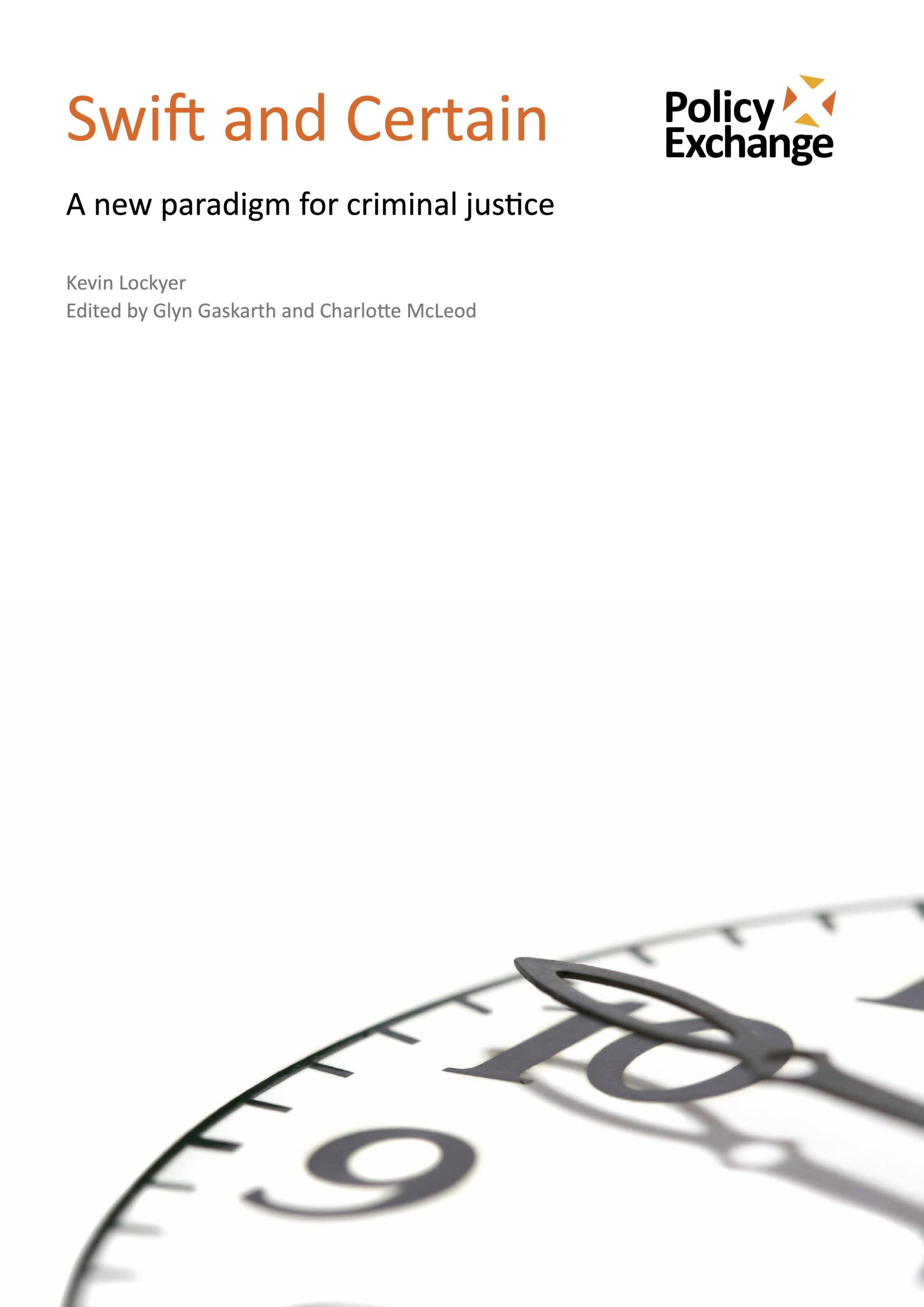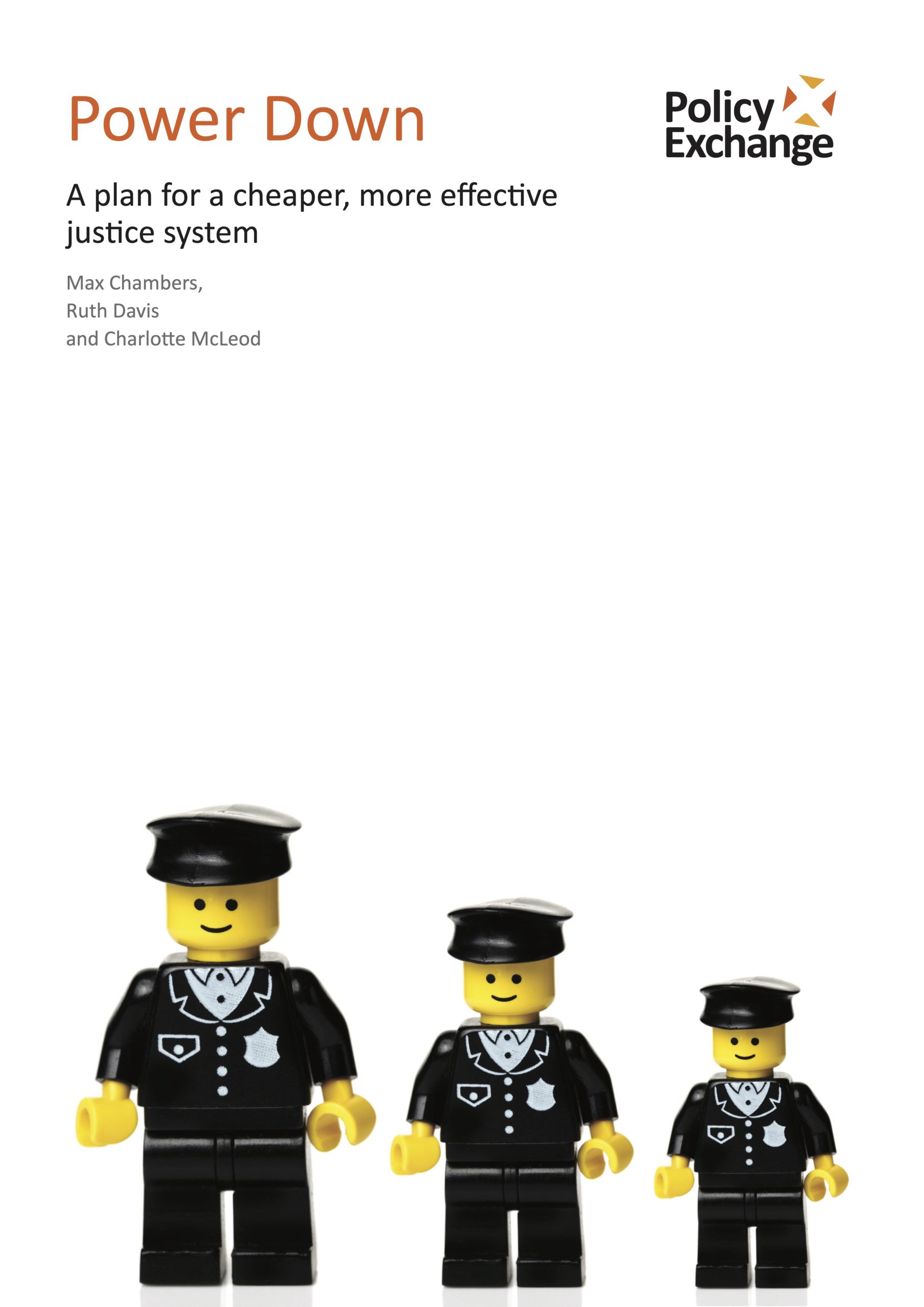Charlotte McLeod
Crime & Justice Research Fellow, 2012-14
Charlotte is a Research Fellow in the Crime and Justice Unit at Policy Exchange. She was called to the Bar by The Honourable Society of the Inner Temple in November 2012, following completion of the Bar Professional Training Course at City Law School and LLB at Cardiff University.Charlotte joined Policy Exchange in July 2012, previously working in the Development Unit. Prior to this, she has volunteered for the National Centre for Domestic Violence and as a Trustee of the Young Achievers Trust.
Housing associations are being stifled by unnecessary red tape that prevents them from building 100,000 new homes a year – a third of the total housing supply needed to keep up with demand. The government should create a new category of 'Free Housing Associations', that are able to set their own rent policy, choose their own tenants and manage their housing stock with greater autonomy.
Written by inner-city crime writer Gavin Knight, The Estate We're In calls for politicians from all parties to pledge to turn around the most deprived council estates within the next decade. The report highlights how decades of neglect and ghettoization have led to acute social problems and, using case studies to extract best practice, draws out the key lessons for policymakers in how to turn around the worst housing estates.
Future Courts calls for magistrates to dispense justice inside police stations at peak times – including evenings and weekends – and be put in charge of the administration of out-of-court disposals, as part of a radical drive to speed up the operation of the criminal justice system.
Power Down argues that the election of Police and Crime Commissioners (PCCs) is a once-in-a-generation opportunity to change the balance of power in a system currently almost bereft of local control, financial responsibility or democratic accountability. It proposes a strategy for a deliberate, steady decentralisation of the criminal justice system. Instead of local leaders looking upwards and inwards to Whitehall for direction and validation, they should increasingly look outwards to […]
This week, the Chancellor announced new plans to introduce a directly elected Mayor for Greater Manchester, who will preside over a range of issues including transport, social care, housing and policing. In light of the announcement, Charlotte McLeod, Policy Exchange's Crime & Justice Research Fellow considers what the future has in store for Police and Crime Commissioners.
Charlotte McLeod, Policy Exchange's Crime & Justice Research Fellow, considers whether we need a specific offence of domestic violence. Charlotte argues that a new offence would require extensive consultation, legal expertise and a continued commitment to tackle it.
Charlotte McLeod, Policy Exchange's Crime & Justice Research Fellow, argues that a strategic review of the court estate is needed in order to improve efficiency and effectiveness. Charlotte proposes that the government should close courts that are outdated and unfit for purpose and introduce mobile or temporary courts and 'Justice Hubs' in order to dispense justice - as recommended in our report, Future Courts.
Charlotte McLeod, Policy Exchange's Crime & Justice Research Fellow, highlights the problems with the criminal justice system's approach to domestic violence. Charlotte argues that we need to find alternative, more proactive ways of tackling domestic violence and improving the confidence for victims that their abusers will be convicted. Ultimately, however, she argues that we must also see society change its attitude and shift the blame and responsibility from victims to perpetrators
Charlotte McLeod, Policy Exchange's Crime & Justice Research Fellow, highlights the shameful failure of the UK government to properly tackle female genital mutilation, despite the practice being outlawed 30 years ago. Charlotte sets out five ways in which the government can do more to eliminate the practice.
Charlotte McLeod, Crime & Justice Research Fellow at Policy Exchange, argues that the one year anniversary of the Police & Crime Commissioner elections has marked a turning point in perception of the role. Charlotte argues that focus is beginning to move away from election reproach and expenses scandals and towards the recognition that reforms are beginning to work.
Charlotte McLeod, Crime & Justice Research Fellow at Policy Exchange urges the piloting of ‘drunk tanks’ to tackle problematic drinking culture which costs in excess of £2.7bn every year and to help free up time, money and resources from our already hard-pressed NHS and police forces.
Following the broadcast of 'The Murder Trial' on Channel 4, Policy Exchange Crime & Justice Research Fellow Charlotte McLeod makes the case for televising court cases. Charlotte highlights the inconsistency of allowing social media into courtrooms, but not TV broadcast, and argues that with stringent safeguards in place broadcasting court proceedings offers an important opportunity to engage the public in understanding how our judicial system works.





